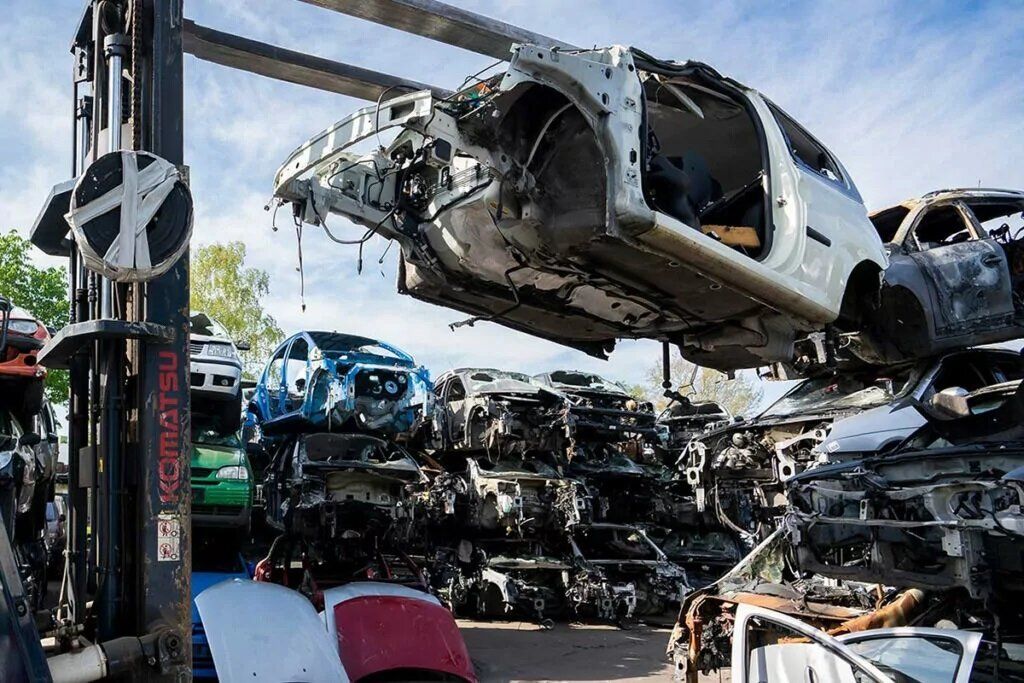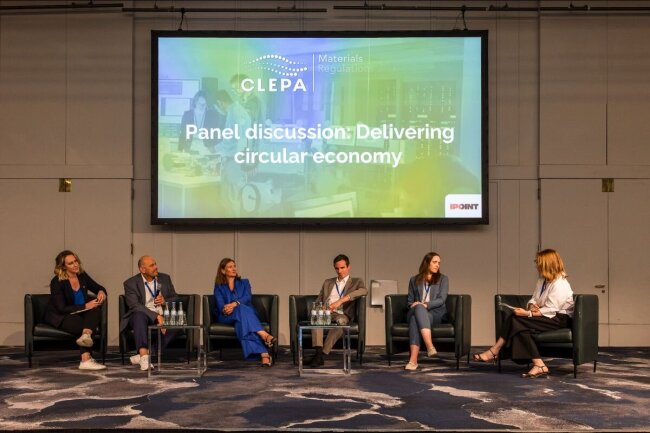Oil filters collected from car dismantling companies are delivered to the Belgian company Oilco, one of ARN’s recycling partners. Each year, this specialized company processes 4.000 to 5.000 tons of oil filters with one clear goal: to maximize the recovery of oil, metal, and energy.
Valuable materials
An oil filter has a simple task: keeping the engine oil clean by filtering out metal particles and combustion residues. But it’s precisely this function that makes the filter itself complex. “A used oil filter typically consists of a metal casing, a paper filter element, contaminated oil, and to a lesser extent plastic components used for sealing,” says Michel Poets, plant manager at Oilco. “Each of these individual components holds value-either for reuse or energy recovery.”
Processing of oil filters
As soon as the filters arrive at Oilco, they are collected in a large bunker where an initial visual inspection takes place. In the bunker, oil slowly drips out of the filters and is collected. “We then mix and homogenize the filters into a uniform stream,” Michel explains. “This is followed by a second visual inspection, during which items like hydraulic hoses and heavy bolts are manually removed. This manual sorting is essential to ensure both the safety and quality of the recycling process.”
Next, the material enters an automated process. In seven steps—using shredders, centrifuges, and magnets—the main components (oil, metal, and paper) are separated from one another. The metal fraction, which makes up about 40% of the filter mass, is relatively pure and is reused in the production of new metal products. The oil (around 20%) is processed by a certified company into base oil, making it suitable for reuse. The paper fraction (40%) still contains oil residues and soot but has a high calorific value. “We use that fraction as a substitute for fossil fuels, such as coal, in cement kilns,” Michel explains.
Recycling versus incineration
Michel explains that a study was conducted to assess the impact of recycling versus incinerating oil filters. “This study covers the entire value chain of the oil filter waste stream. It shows that not only are 20% more raw materials recovered through recycling, but the recovered materials are also of higher quality.”
An additional advantage: the emission of CO₂ equivalents from recycling is significantly lower than from incineration. “We calculated the full impact: for every ton of oil filters we process, we avoid approximately 1,500 kg of CO₂ equivalents across the entire chain. This is mainly because the oil and metal do not need to be extracted again.”
Legislation and practice
Despite these positive results, many oil filters are still lost. “For example, we often see oil filters ending up mixed with oil-containing waste,” says Michel. “It would be helpful if lawmakers in Belgium and the Netherlands provided clear regulations on the obligation to separately collect and recycle oil filters—and thus also explicitly banned incineration.”
According to Michel, collectors also have a key role to play: “The role of collectors should not be underestimated. They should make it standard practice to keep oil filters separate, which would make proper recycling possible.”
Technology and the future
Processing oil filters is not a simple task. “There are always risks of unplanned downtime, fire, or explosions. Our systems therefore require constant maintenance and the implementation of preventive measures.” Still, Michel is optimistic about the future. “We expect volumes to decline over time, both domestically and abroad, partly due to electrification. But that process will take time—and we also process international volumes.”
The main challenge, according to him, lies in extracting the maximum value from each filter. “We want to improve the oil recovery from the paper fraction even further—and perhaps one day even recover paper fibers.”
Collaboration with ARN
Oilco has worked closely with ARN for many years. “They supply the filters and are involved in the processing,” says Michel. “They have high standards when it comes to quality and sustainability. The collaboration is smooth and pleasant. They visit regularly and always show a strong interest in the recycling figures.”
Proper collection makes the difference
Proper disposal starts at the car dismantling company. Store oil filters separately, without bolts, screws, cleaning cloths, or similar materials. Hand them in separately as well, using the leak-proof barrels provided by ARN. This helps prevent environmental damage, ensures compliance with regulations, and contributes to a circular supply chain.
Source: ARN.



